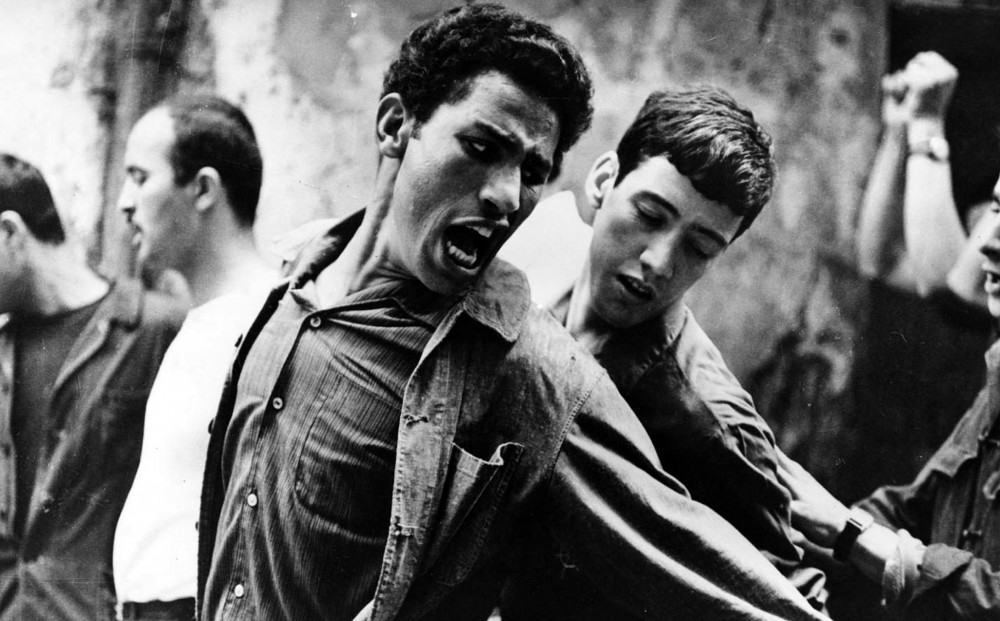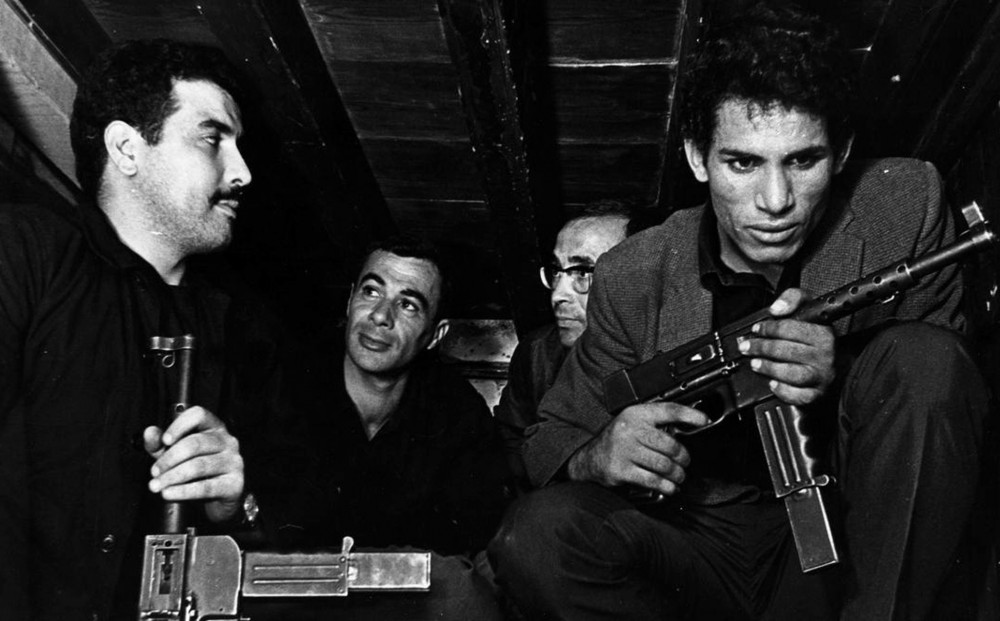THE BATTLE OF ALGIERS
3:20 8:20
Saturday, May 25
(1966, Gillo Pontecorvo) 1957: French paratroopers inch their way through the labyrinthine byways of the Casbah to zero in on the hideout of the last rebel still free in the city. Flashback three years earlier, as the Algerian National Liberation Front (FLN) decides on urban warfare. Thus begin the provocations, assassinations, hair-breadth escapes, and reprisals; Algerian women – disguised as chic Europeans – depositing bombs at a sidewalk café, a teen hang-out and an Air France office; and massive, surging crowd scenes unfolding with gripping realism. FLN boss/producer Saadi Yacef (who also plays the rebel leader based on himself) interviewed several European filmmakers before settling on Italians Pontecorvo and screenwriter Franco Solinas, with sequences shot and edited to the driving score by Pontecorvo and the legendary Ennio Morricone. Algiers feels like it’s been ripped from today’s headlines, from its random bombings to the French commander’s chilling press conference pronouncement that to combat terrorism “you must accept all the consequences.” Oscar-nominated for Best Foreign Film, Best Screenplay, and Best Director, and winner of the Golden Lion (Grand Prix) at the Venice Film Festival. In Arabic and French, with English subtitles. DCP. Approx. 121 min.
Reviews
“A MASTERPIECE!
Surely the most harrowing political epic ever!”
– Philip Gourevitch, The New Yorker
“ASTONISHING!
A political thriller of unmatched realism!”
– A.O. Scott, The New York Times
“Even today it’s easy to see why the results outraged French officials (who banned it until 1971) and astonished everyone else. No other fiction filmmaker had so accurately replayed a recent, world-shaking conflict. No one else had pursued the truth by creating a big film with so few trained performers… The term docudrama was not yet in wide use, and already Mr. Pontecorvo’s film overshadowed the nascent genre.”
– Stuart Klawans, The New York Times


